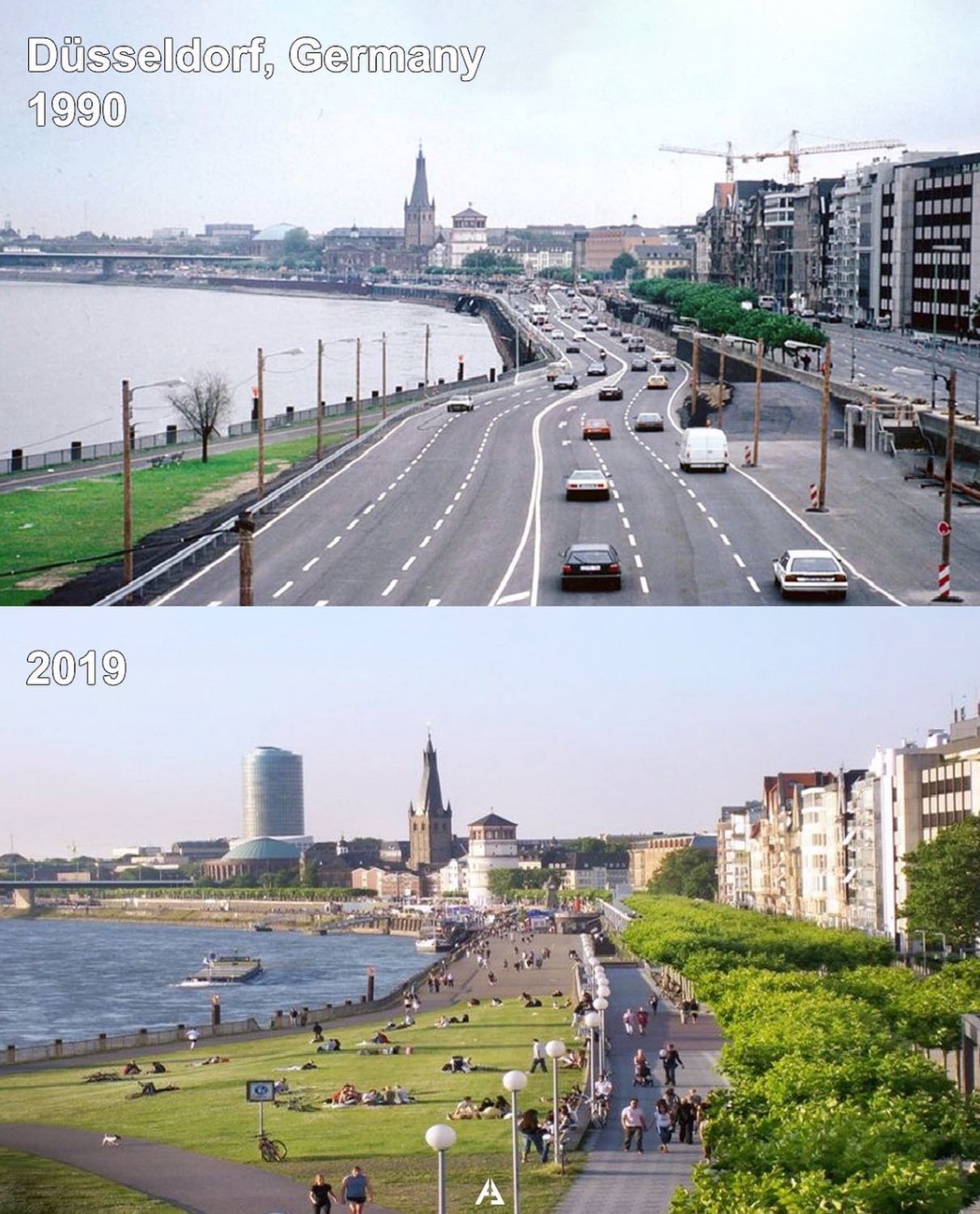this post was submitted on 27 Jul 2023
2122 points (95.2% liked)
Mildly Interesting
17477 readers
146 users here now
This is for strictly mildly interesting material. If it's too interesting, it doesn't belong. If it's not interesting, it doesn't belong.
This is obviously an objective criteria, so the mods are always right. Or maybe mildly right? Ahh.. what do we know?
Just post some stuff and don't spam.
founded 1 year ago
MODERATORS
you are viewing a single comment's thread
view the rest of the comments
view the rest of the comments

The comparison is between today and 'today but without the highway', not between today and before the highway was built. If the population increase is greater with the highway there, that's still part of the induced demand.
A city being "bad for drivers" is not a great indicator of it not being car dependant. Cities in the Netherlands are probably the most walkable and bikable on the planet, and also great to drive in because there are hardly any cars.
How about comparing the before, where rush hours totaled like six hours a day of bumper to bumper, stop and go, just sitting there polluting, wasting so much time, money, health. Today, while rush hours is still too long, traffic continues to move, no stop and go, much less time sitting there, raging. Today, on the surface in Boston, there is likely much less traffic, benefitting everyone
Because the point of the comparison is to determine if the infrastructure investment was cost effective. What would traffic look like today if the money had instead been used to build public transport, bike lanes, and walkable streets? If the alternative investment had improved traffic even more, building the highway was the wrong thing to do.
In the case of the Big Dig, it did.
-- just look at those pictures someone linked, and they don’t actually do it justice. Before, you might have to cross under a six lane elevated highway with surface streets. Now getting from one part of the city to another is a literal walk in the park. Reconnecting parts of the city to be walkable was one of the main goals, and it achieved
-- part of the mitigation was required transit improvements. Of course, some of that was delayed by politics, but I believe it did happen.
I wouldn't suggest that highways never induce demand, but the idea that people are driving more in Boston because of the Big Dig seems doubtful to me.
The Netherland has pretty robust car infrastructure too.
And I agree; a city can be bikable, walkable, and drivable all at once. That should be the goal.